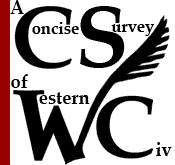Primary Sources for Chapter 11
Mastery of the Machine: The Industrial Revolution, 1764 to 1914
Study Guide| Art History | Links
Observations on the Loss of Woollen Spinning, 1794: a report on how the rise of factories changed family life.
Content Question: What miseries does the author report have affected families, especially women and children?
Analysis Question: How does the quality and quantity of work for a family change because of factories?
Evaluative Question: How does the author connect the growing wealth created by manufacturing with the increase of poverty?
From Condition of the Working Class in England: a view of urban blight by Friedrich Engels, one of the founders of Marxism.
Content Question: What are the main problems Engels sees with the city life of workers?
Analysis Question: How does Engels view workers as taken advantage of by others?
Evaluative Question: How should society deal with health and safety issues created by rapid or uncontrolled urbanization?
The full text of Engels’ Condition of the Working Class is available here or here.
See also Engels’ correspondence with the translator here.
Carlsbad Decrees: conservatives pass resolutions to stop freedom of the press and freedom of ideas at universities.
Content Question: What are the main prohibitions?
Analysis Question: How could students or writers get around these restrictions?
Evaluative Question: How dangerous are student unrest or a free press to the established order today?
Gotha Program, 1875: German Socialists set goals for a better life for workers.
Content Question: What are the most significant goals?
Analysis Question: How were these goals threatening to the established order then?
Evaluative Question: How many have been put in place now in various countries? How do some people still find some of these provisions threatening?
Darwin’s The Descent of Man, selection: the naturalist sums up some key ideas of human origins in ancient ape-like ancestors.
Content Question: What the main proofs he asserts to support his theory?
Analysis Question: How does he apply his views to understanding human culture?
Evaluative Question: How would some of his interpretations have fed the ideas of Social Darwinism?
The full text of Darwin’s conclusion to The Descent of Man is available here, here, or here.
For more on issues of racism, click here.
Primary Source Project Links
11a. Arthur Conan Doyle versus M. Woeste about Imperialism



